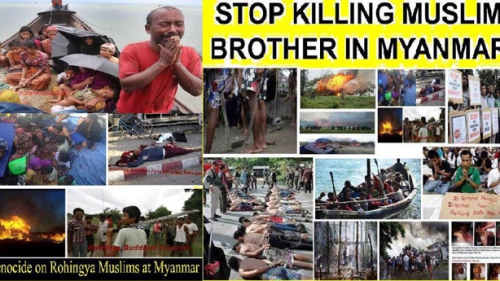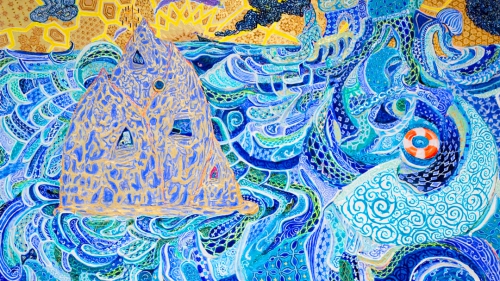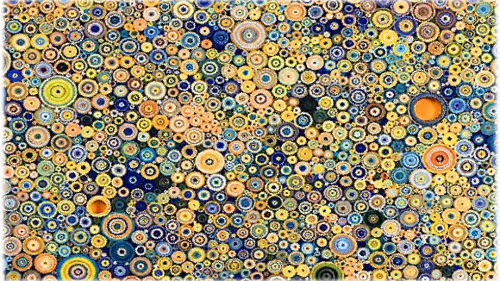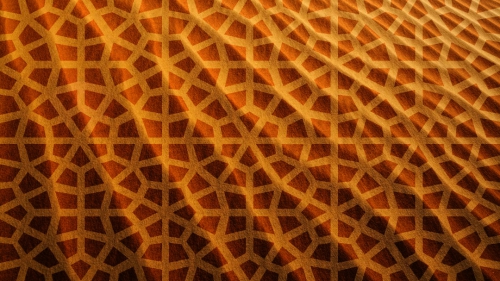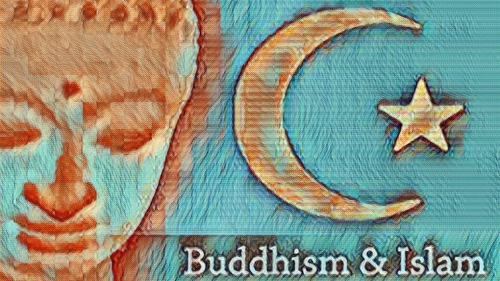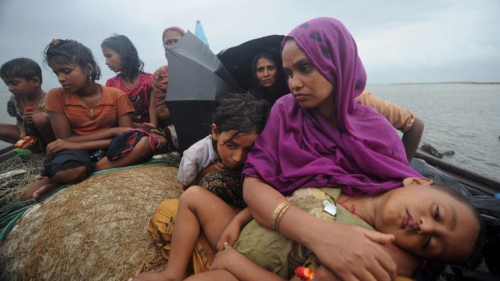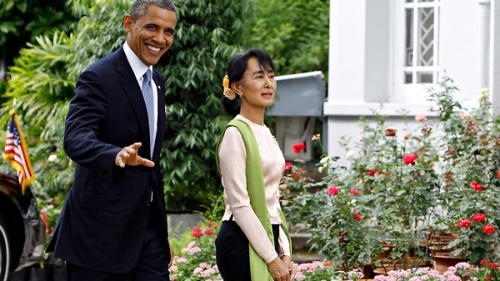Emerging Light in Seventh Century Arabia
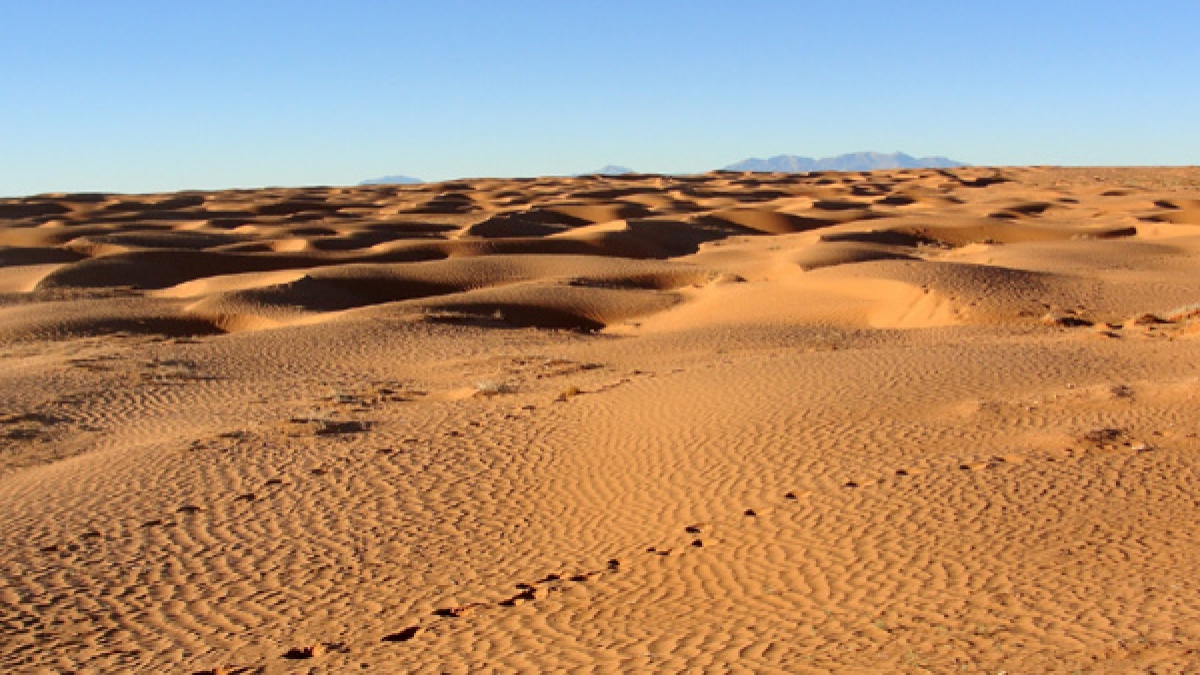
Note: The purpose of this article is not to review world history at the time of the advent of Islam, therefore my comments here are necessarily broad and sweeping in character.
The seventh century appears to have been a time of world wide moral confusion and decay. Christianity had divided into various factions and controversies surrounded the personalities of Jesus and his mother, Mary. The Roman Catholic and Eastern Orthodox churches exhibited deep prejudice and intolerance against each other. In Persia, absolutism of the monarchical system influenced and controlled most aspects of the society. Zoroastrianism was also unraveling. In addition to the internal turmoil, Christianity and Zoroastrianism were in a constant state of friction. India and China were similarly morally adrift. India had thrown out Buddhism out of its birth land, and the old polytheistic practices were resurgent. The oppressive caste system, which Buddhism had revolted against, was as entrenched as ever. In China, at the same time as a great flowering of the arts, music and dance was occurring, there was a general sense of moral confusion. Many Chinese individuals claimed to be the followers of all of the three prevailing traditions: Confucianism, Taoism, and Buddhism. Buddha had been turned into an object of worship and huge statues depicting his likeness were commonplace. This was a surprising turn of events for a non-theistic religion whose founder had never claimed divinity, or prescribed idol worship.
The Arabian Peninsula, with the exception of Yemen, which was on the caravan route, was in darkness; Little was known about it to the outside world. Polytheism and idol worship were rampant in Arabia, as was tribalism and unrestrained pursuit of wealth and power. Most Arabs were nomads, who felt assured by tribal security. This stability was based largely on the tradition of "blood vengeance," which invariably resulted in an endless cycle of revenge. Society seemed even harsher in the cities. At the time, there were only a few cities like Makkah and Ta'if. A small number of rich and controlled the economy. Many of the poor were entangled in a web of usury riba. This system of riba turned them into virtual slaves, Slavery itself was commonplace. Women's status was also extremely deplorable and they were treated largely as chattel, which was essentially another form of slavery. Marriage, inheritance, and divorce laws reflected the chauvinistic attitudes prevalent in the society. For example, unlimited polygamy was widespread; primogeniture was the rule and Sons often inherited their fathers' wives. A husband could stop conjugal relations with his wife and abdicate all responsibilities toward her without divorcing her and letting her go free. This cruel treatment of wives called zihar (turning your back on something) was widely practiced.
Although females were oppressed and abused routinely (female infanticide was commonplace, and male progeny was a source of pride and status in society), the majority of deities were female. The three major deities, al-Lat, al-'Uzza, and alManat were considered the daughters of Allah.
Have you seen al-Lat and al-Uzza and the third Manat?
What for you the male gender and for Him the female!
(Qur'an 53:19-21)
The Qur'an refers to the practice of burying alive infant girls by posing this poignant question;
When the female infant buried alive
will ask for what crime was she killed?
(Qur'an 81:8-9,)
These injustices, inequities, and cruelties weighed heavily on the shoulders of at least some of the individuals living in Arabia. In spite of rampant polytheism and idol worship, some did have a concept of a transcendent God whom they called Allah.1
The Qur'an refers to this in the following verses:
If indeed thou ask them who has created the heavens the
earth and subjected the sun and the moon (to His law), they
will certainly reply. Allah.
How are they then led away ('from the truth)?
Allah enlarges the sustenance (which He gives) to which
ever of His servants He pleases;
And if indeed thou ask them who it is
that sends down rain from the sky
And gives life therewith to the earth after its death,
they will certainly reply Allah!
But most of them understand not.
What is the life of this world but amusement and play?
But verily the home in the Hereafter -
that is life indeed, if they but knew
Now if they embark on a boat they call on Allah,
making their devotion sincerely to Him.
But when He has delivered them safely to land
behold they give a share of their worship to others!
(Qur'an 29.' 61-65)
Ibn Ishaq records that there were at least four individuals in Makkah who had turned away from idol worship and polytheism and had adopted the monotheism of Prophet Ibrahim (Abraham). Amongst them was included the important figure, Waraqah bin Nawfal, who later verified the authenticity of Muhammad's
Prophethood. These people were called the Hanifs (the upright men or those who turn away [from idol worship]).2
Born in 570 C.E. Muhammad was orphaned early in his life and was raised initially by a loving but poor grandfather, Abd al-Muttalib, and later by his uncle Abu Talib. In these early years, Muhammad
emerges as a quiet, thoughtful and introspective individual. He earned a reputation for being trustworthy (al-Amin), diplomatic and wise. There was an incident in his youth, during the rebuilding of the Ka'bah, when a dispute arose over which tribe should place the "Black Stone" (al-Hajar al-As wad) back in its previous spot. Muhammad
solved the problem by placing the stone on his cloak and asked members of all the tribes to lift it up. He then laid the stone in its designated spot himself.
He proved himself a conscientious and successful businessperson and caravan leader. This business acumen and his widely known reputation of trustworthiness, thoughtfulness and gentility attracted the attention of Khadijah. An exceptional woman, Khadijah was a prominent businesswoman in a misogynist society. She had been married twice before and was a widow. Her marriage to Muhammad was very fruitful and lasted until the rest of her life. They had six children, two sons who died as infants) and four daughters (Zaynab, Ruqayyah, Unim kulthum and Fatima).
Although married to a wealthy woman, the Prophet continued to lead a frugal life and spent much time in meditation. His favorite place for meditation was the Hira cave about three miles from Makkah. He would spend the entire month of Ramadan (the ninth month of the lunar calendar, and later the month during which Muslims were ordained to fast in order to practice abstinence and self-discipline to attain personal piety) meditating in this cave. This practice of meditating in seclusion, striving for wisdom and righteousness was common among the Arabs and was called "Tahannuf". The cave of Hira was where he received his initial revelation. However after he received the first revelation, which was in essence a call for action, the Prophet
never went back to the cave.
It is difficult to resist drawing analogies between the seventh century world and the state of the human morality in today's world at the turn of the new millennium. The nuclear man-woman, two-parent family, as a core unit of society has eroded seriously in the West. Brazen sexual exploitation in the media is commonplace and illicit sex condoned and even accepted. Violence at home, against women, children, and violence in the streets, is frightfully routine. Substance abuse is widespread, with United States as the largest consumer of drugs in the world. Alcoholism is rampant, especially among college students, with only feeble attempts being made to address the problem. The lessons from the AIDS epidemic are being swept under the rug of political correctness. African-Americans have been liberated as slaves for a century and a half, yet many are still trapped in an unending cycle of poverty and discrimination, which is a form of economic slavery. Because of a system that allows unrestrained growth of wealth without encouraging proper redistribution, economic disparities and injustices continue to grow at an alarming rate.
However, there are many excellent characteristics in Western societies, especially in the US, particularly freedom of thought, speech and assembly, a tolerant attitude toward eccentricities in human nature and an ambition to be a just and compassionate society. Many of these qualities, especially freedom of speech, thought and pluralism, are sadly lacking in many Muslim societies. Nevertheless, the moral and socioeconomic scene of today's world is uncannily similar to seventh century Arabia before the advent of Islam.
The unraveling of the moral fabric in today's society must weigh heavily on the minds of individuals with insight. They can draw personal solace and inspiration from the Prophet's life. The Arab tribal society of the seventh century, whose structure was based on greed, debauchery, and violence, was changed in a very short time, by the Prophet
, into a society with one of the highest moral standards in history. Compassion, humility, devotion to God and egalitarianism replaced the old well-entrenched tribal attitudes of pride in wealth, family and class, cruelty toward fellow humans and self-centered behavior. Women, for the first time in history, had rights and dignity, and the vulnerable and weak sections of the society were protected. Sexuality was removed from public prurience and became private and wholesome. Wealth was re-circulated so that even the smallest capillaries of the society were infused with energy and indigence became nearly extinct.
Those who are receptive to learning from Muhammad's mission can draw inspiration and hope to reform society. Their biggest challenge will be to grasp the core values of his message by removing the accretions of cultural practices, vagaries of time and historical events that have confounded it. They cannot turn to any of the modem Muslim nations to search for paradigms of Muhammad's
community during his life. In fact in many Muslim countries and communities, anthropologists and social scientists discern the perplexing paradox of rapidly increasing enthusiasm for Islam and respect for Muhammad
, and the persistence of very high levels of corruption, tribalism, violence, intolerance and injustice, which are the antithesis of the very ideals which he preached and practiced in his life.
If the thoughtful analyst is successful in this attempt at understanding the core values of the Prophet's message, then he is likely to come up with dynamic and innovative solutions to current and future problems. The approach by most Muslims at solving current problems has been imitative rather than innovative.3 The lessons that the analyst obtains are likely to have universal value and applicability, as human needs and problems are essentially the same regardless of color, ethnicity, race, religion or the millennium in which the person is living.
Notes:
-
The use of the word Allah by the pre Islamic Arabs did not imply a monotheistic philosophy. Rather it referred to one superior God in panoply of multiple Gods. It is very similar to the Param Ishwara or the God of Gods concept in Hinduism. Nevertheless it is important to note that the word Allah itself was in common usage before the advent of Islam.
-
Alfred Guillame. The Life of Muhammad: A Translation of lisa Ishaq's "Sirat Rasul Allah" (Oxford: Oxford University Press, 1982) pp. 98-100.
-
An excellent discussion of this issue may be found in Abdul Hamid A. Abu Sulayman's book The Crises in the Muslim Mind 1st ed. (Herndon, Virginia: International Institute Of Islamic Thought, 1993),
Javeed Akhter, is the Executive Director of the Chicago based International Strategy and Policy Institute and he is the author of the book "The seven phases of Prophet Muhammad's Life,"
Click Here to read book review of The seven phases of Prophet Muhammad's Life
Related Suggestions
Shalom
Some people think sharia law has something to offer Britain, I doubt that. Britain abolished slavery in 1807 and the death penalty in 1967. Okay, street violence is higher in the west than in say Saudi Arabia, but I prefer dangerous streets patrolled by just police much much more than safe streets patrolled by religiously motivated police with the mercy, remorse and logical capacity of a machine gun. As for violence at home, nothing Britain has can compare to the amount in the fundamentalist Muslim countries. Although I can think of a couple of cases of it happening in north America, one case in which a man strangled his own daughter to death for refusing to wear a Hejab and another incident in which a girl was beaten to death by her own father for the exact same reason. I will continue in part 2
I will admit that violence on the streets is a problem in Britain, for example, gun crime, every year about 26 people die because of it, now lets talk about suicide bombers, on sep 7th 2005, 52 people were killed in the space of one day (twice the annual death toll from gun crime) and there are 2,000 Muslim in Britain praising their actions and there are over a dozen would be bombers who were foiled now in jail.
Has anyone heard about the Islamic gang rape epidemic going on in Europe and Australia. Statistics show 80% of all rapes are done by Muslims in Sweden. I advise everyone who is reading this to go to google and then type in "Pan-European Arab Muslim Gang Rape Epidemic-IRIS" and after reading it go back to Google and type in "Muslim Gang Rape an Epidemic" if you don't believe what you read then look into the matter further. For those of you who say there is no racism in Islam, my response is this: So what? Non of the major religions are, some may say in Islam there has never been any. I advise those people to look into the life stories of Omar Al Bashir and Idi Amin and to then go on youtube and type in Muslim Black slavery - Islam slave history of Black Africa and once again, if you do not believe what it says, look into the matter further.
And if you are one to complain that Muslims are persecuted in Europe and America, I advise you to take a look at hoe Christians are treated in Iran. In Saudi Arabia, crucifixes and Bibles are not even legal
My conclusion: Sure the West has problems but Islam needs to look into and rectify its own problems before it starts criticizing the west.
The author poignantly points out to the darkness of the present era, the darkness deliberately brought in by proud men rejecting compliance to the simple teachings of the Gospel. Men think they are advanced enough to reject the old morals. But the apostates are not falling on the new morass. "Reject the unchangeable truth of God and fall in the trash of Satan" is an unbreakable chain. Amidst the confusion that persists during the time of men's pride in the present civilization and enlightenment, there is a noticeable falling away, as stated by the author, among the people that erstwhile professed faith. In this state, God will send a man to reign over the chaos by engaging his own diabolical methods; not a man who might lowly revive the covenants that has been trampled by proud men.
Hereby receive the Anti-Christ, O world lost in the thrills of Sin. Who will have pleasure in revival of the broken divine covenant but a feeble remnant? Who will hear the groaning of the feeble remnant for revival of charm less old values and virtues when they are dashing headlong into perdition? Human nature shows we can not expect good in future as we become old wineskins for new wine of revival. How can the farmer who eats the seed now expect harvest in its season? ... Who can expect to inherit good by sowing the causes for bad? We do not sow dung of revel now but living seed to reap the harvest in its season.
Time of God's vengeance is at hand, O ye mankind. Repent therefore and turn to the Lord seeking His pardon in grace. That is the only last chance; do not think of repetition of past revival in store. God gives once and for all. Receive thankfully and use again and again; do not ask for the same spilling and wasting again and again.
Shalom.







